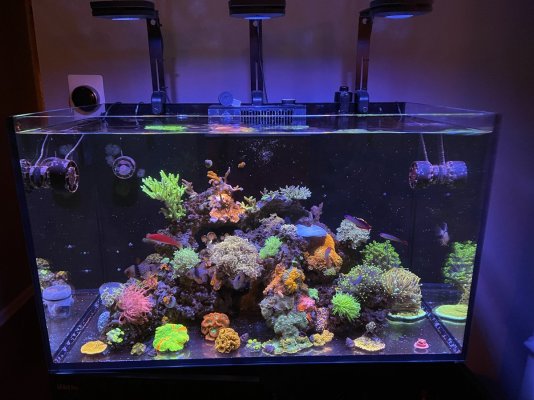I switched to all for reef from 2 part (plus trace) for dosing a couple months back and its been great for keeping my alk and calcium consistent. But I just received my ICP test back today and its low on some trace elements. I also do 1 gallon AWC daily. Is this normal to have to dose more trace elements on top of water changes and using all for reef?
Tank is a Red Sea 525XL (139 Gallon) LPS Dominant
Low Elements:
Iron - 2.338 ppb
Iodine - 4.213 ppb
Cobalt - .043 ppb
Manganese - .482 ppb
Zinc - 0 ppb
Tank is a Red Sea 525XL (139 Gallon) LPS Dominant
Low Elements:
Iron - 2.338 ppb
Iodine - 4.213 ppb
Cobalt - .043 ppb
Manganese - .482 ppb
Zinc - 0 ppb























